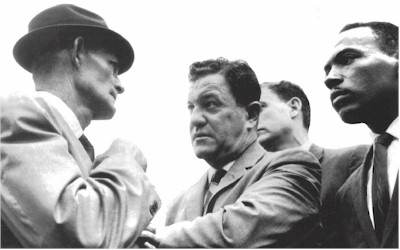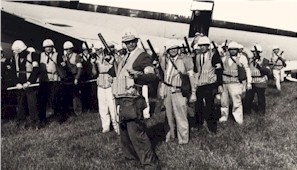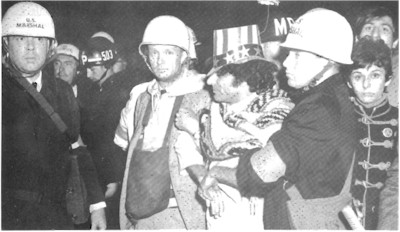| In a government based on the concept of civilian
supremacy, the U.S. Marshals and their Deputies provided the civilian
enforcement power. The military was restricted to emergency support.
Early on, the federal government adopted measures to make its authority
more palatable to the American people. Those who enforced federal laws
at the local level generally came from that locality. They understood
the people, for they were dealing with their friends and neighbors.
This was particularly important in the 19th century when lack of
communications made the national government distant and seemingly
foreign, but everyone knew or had heard of the Marshal because he had
been active in community affairs and politics for years.
For most of their history, U.S. Marshals enjoyed a surprising degree
of independence in performing their duties. Quite simply, no
headquarters or central administration existed to supervise the work of
the Marshals until the late 1950s. Even then, the Executive Office for
U.S. Marshals had no real power over the districts until it was
transformed into the U.S. Marshals Service in 1969 and given control of
the district budgets and the hiring of Deputies. Prior to that, each
Marshal was practically autonomous, receiving only general guidance from
the executive branch of the government.
As a result. the Marshals; working with the federal judges and U.S.
Attorneys in their districts, enjoyed a wide latitude in determining how
they would enforce the law. For most of them, the solution was to go as
easily as possible. Few of them wanted to give offense to their friends
and neighbors, particularly since they knew all to well that the job of
Marshal was temporary. Unless they were prepared to leave their homes
after their commissions expired, the Marshals struggled to balance the
enforcement of Federal laws against the feelings of the local populace. |



